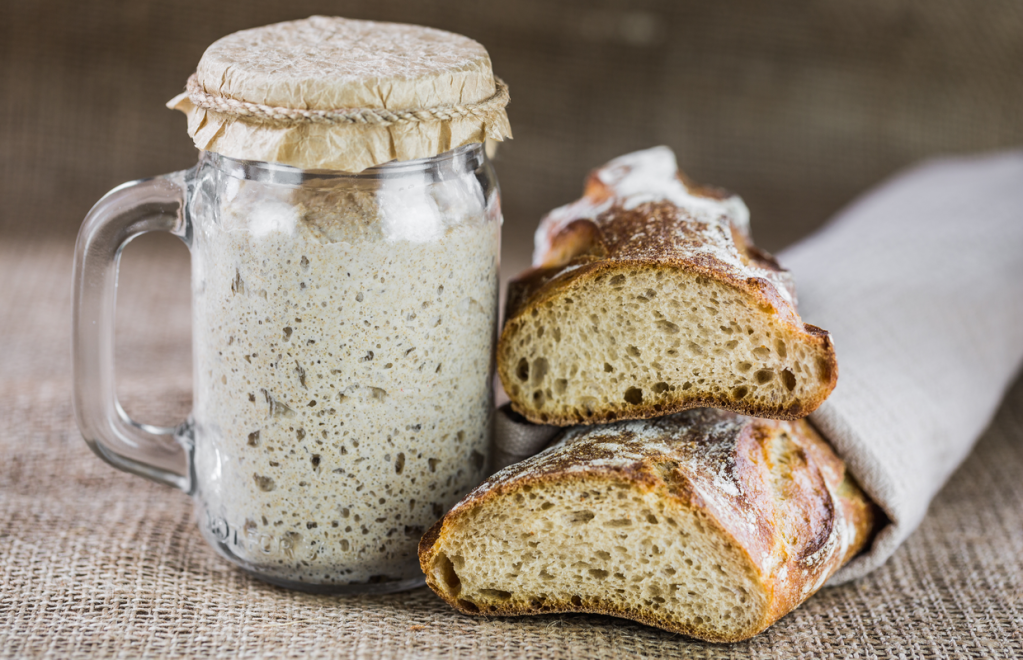7 Health benefits of fermented food
From improved gut health to boosted energy, nutrition editor Eve Kalinik takes a look at some of the key health benefits of fermented food...

Looking to spruce up your diet? Why not try adding some fermented foods to your diet? They’ve been becoming increasingly popular in recent years due to their gut-health benefits. Not only will they spice up (or should we say, umami up) your palate, they are also jam-packed full of endless health benefits. Some might say the health benefits of fermented foods are anecdotal, but humans have eaten them for millennia for their health-giving properties.
What are fermented foods?
Fermentation is where the ‘good bacteria’ in foods are encouraged to thrive. This leads to a change in both the flavour and shelf-life of the food in question – not to mention, the added health benefits.
Let’s look specifically at vegetables. All vegetables are covered in a good bacteria called lactobacillus. When you cut up and combine the veggies with salt, it forms a brine. This causes the lactoballilus to multiply, before breaking down the natural sugars and turning them into lactic acid.
This process creates the distinct, tangy flavour of fermented foods, alongside the necessary conditions required to keep bad bacteria at bay and preserve the food.
Some of the most popular fermented foods include sauerkraut, kimchi, kefir and kombucha. However, while these have only recently become trendy in the UK, people have used them globally for thousands of years, namely for their numerous health benefits.
Our relationship with the microbial world
You could look at the health benefits of fermented foods as a demonstration of a long-standing give-and-take relationship with our microbial world. We feed microbes their preferred food, depending on the ferment, and they reciprocate by producing positive substances, which provide us with a range of health benefits.
7 health benefits of fermented foods
Below, Eve Kalinik has rounded up some of the key health benefits of eating fermented foods…

1. Boost your energy levels and aid detoxification
When we feed our bodies with fermented foods, our microbes produce beneficial substances, including compounds such as organic acids that can help us by supporting energy, detoxification and the production of neurotransmitter chemicals that benefit both gut and brain.
2. Top up your vitamin levels
Fermented foods are higher in both concentration and absorption of certain vitamins and minerals, including vitamin B12, biotin, folic acid, calcium, magnesium, potassium and zinc. This means, not only will you be ingesting higher levels of these vitamins and minerals, but your body will also be able to more readily absorb and use them.
3. Fermentation makes proteins easier to digest
The fermentation process means that proteins are, to varying degrees, ‘pre-digested’. This includes casein in milk and gluten in bread, which can make them easier to digest and absorb.
This is why fermented dairy in cheese and yoghurt can often be better tolerated if someone has issues with straight-up milk, and why sourdough can be easier on the gut than non-fermented bread.

4. Feed your good bacteria with prebiotics
Fermented foods contain prebiotics. These have a positive feeding effect on our existing gut microbiota. Think of prebiotics as food or fertiliser for the trillions of good bacteria living in your gut. By feeding them, you’re giving your gut the best possible chance to thrive.
5. Fermented foods are essentially probiotics in food form
Unlike PREbiotics, which are food or fertiliser for live bacteria, PRObiotics refers to the live bacteria itself. By ingesting probiotics, you can diversify or restore your gut microbiome.
Did you know, fermented foods are essentially probiotics in food form? This means, when you eat or drink fermented foods, you’re ingesting a high source of gut-boosting microbes. Your gut will certainly thank you!
6. Our gut microbiota thrive in the acidic conditions from fermentation
In addition, fermentation increases lactic acid production, which makes it tricky for many other microbes to survive. Luckily the beneficial acid-loving bugs in our gut thrive in these acidic conditions, meaning they win out. This is a huge plus for our resident gut microbiota!

7. Eating fermented foods expands your tastes
Last, but by no means least, there is a depth of flavour in fermented foods, derived from their natural umami. Once you foray into fermentation, you’ll wonder why you didn’t start sooner. You’ll be amazed at how the simple addition of a spoonful of sauerkraut or kimchi can elevate the simplest of sarnies!
See more from Eve Kalinik at @evekalinik. Eve’s book, happy gut, happy mind (£25), is out now.









